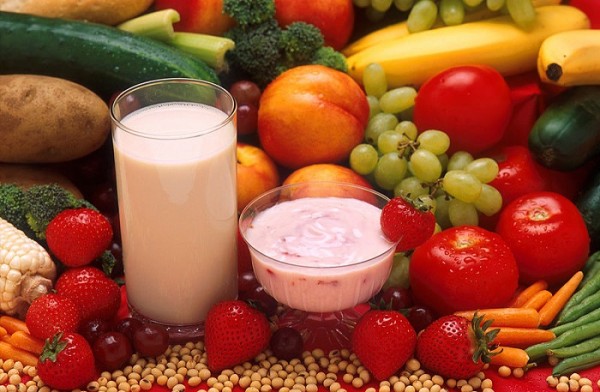
People who eat a vegetarian diet tend to have lower blood pressure than non-vegetarians, according to a new review of past studies.
Researchers said for some people, eating a vegetarian diet could be a good way to treat high blood pressure without medication.
Vegetarian diets exclude meat, but may include dairy products, eggs and fish in some cases. They emphasize foods of plant origin, particularly vegetables, grains, legumes and fruits.
High blood pressure contributes to a person’s risk of heart disease, stroke, kidney disorders and other health problems. For many people, the only treatment has been medication, but that means costs and possible side effects, lead author Yoko Yokoyama told Reuters Health in an email.
“If a diet change can prevent blood pressure problems or can reduce blood pressure, it would give hope to many people,” Yokoyama said. She is a researcher at the National Cerebral and Cardiovascular Center in Osaka, Japan.
“However, in order to make healthful food choices, people need guidance from scientific studies,” she said. “Our analysis found that vegetarian diets lower blood pressure very effectively, and the evidence for this is now quite conclusive.”
According to the American Heart Association, blood pressure readings under 120 mm Hg systolic and 80 mm Hg diastolic (120/80) are considered normal. High blood pressure starts at 140/90.
The new review, published in JAMA Internal Medicine, combined results from 39 previous studies, including 32 observational studies and seven controlled trials.
“Observational studies show what happens when people have chosen their own diets and stuck with them, often for years,” Yokoyama said. “Controlled trials are different – a diet is given to people who had not tried it before, and that will show the effect of beginning a new way of eating.”
Together the studies included close to 22,000 people.
The researchers found that in the observational studies, people who had been eating a vegetarian diet had an average systolic blood pressure that was about 7 mm Hg lower than among meat-eaters and a diastolic blood pressure that was 5 mm Hg lower.
Participants in the clinical trials who were given vegetarian diets to follow had, on average, a systolic blood pressure that was 5 mm Hg lower and a diastolic blood pressure that was 2 mm Hg lower than participants in control groups who were not on vegetarian diets.
“Unlike drugs, there is no cost to a diet adjustment of this type, and all the ‘side effects’ of a plant-based diet are desirable: weight loss, lower cholesterol, and better blood sugar control, among others,” Yokoyama said.
She said a plant-based diet is typically low in fat and high in fiber, so it helps people lose weight, which, in turn, causes a healthy drop in blood pressure.
“But there is more,” Yokoyama said. “Plant-based foods are often low in sodium and are rich in potassium, and potassium lowers blood pressure.”
The same foods are also very low in saturated fat – the type of fat in meat and cheese – and eating less saturated fat means blood can circulate more easily, she explained.
“I would encourage physicians to prescribe plant-based diets as a matter of routine, and to rely on medications only when diet changes do not do the job,” Yokoyama said. “And I would encourage everyone to try a plant-based diet, and especially to introduce plant-based diets to their children – they could prevent many health problems.”
Alice Lichtenstein, director of the Cardiovascular Nutrition Laboratory at Tufts University in Boston, said the results of the review are encouraging, but added that it didn’t take sodium in the diet and lifestyle factors into account.
“Individuals who adhere to vegetarian diets are likely to use fewer processed foods, the major source of dietary sodium, and adhere to healthy lifestyles behaviors such as maintaining a body weight in the optimal range and engaging in regular physical activity,” Lichtenstein told Reuters Health in an email. She was not involved in the new research.
“Until we understand the contribution of these factors we can’t attribute the effect observed solely to adhering to a vegetarian diet,” Lichtenstein explained.
“We certainly would not encourage substituting a slice of quiche for a grilled chicken breast for dinner, due to the sodium, calories and saturated fat,” she said.
What’s more, the findings do not mean that people taking blood pressure medication should go off their drugs in favor of diet changes without talking to a doctor.
Yokoyama said doctors who would like to prescribe diet changes need tools.
“We have developed a free program, called the 21-Day Kickstart program, which introduces a plant-based diet through daily emails that provide menus, recipes, cooking videos, and a discussion board for questions. It is available at no charge in English, Spanish, Mandarin, and Japanese, along with a special English-language program for India,” Yokoyama said.
The program is affiliated with the Physicians Committee for Responsible Medicine, an organization that promotes plant-based diets.
Source: Reuters



 A major study has found that giving patients medications to lower their blood pressure during the first 48 hours after a stroke does not reduce the likelihood of death or major disability.
A major study has found that giving patients medications to lower their blood pressure during the first 48 hours after a stroke does not reduce the likelihood of death or major disability.